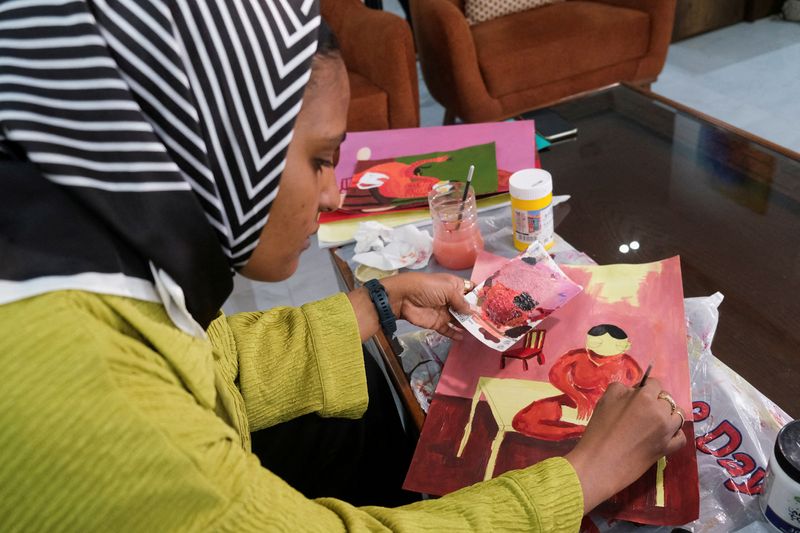Fighting escalates in Sudan’s capital after ceasefire expires
2023.06.04 16:36

Fighting escalates in Sudan’s capital after ceasefire expires
Fighting intensified in several areas of Khartoum on Sunday after a ceasefire deal expired, residents of Sudan’s capital reported, and activists said a new outburst of violence in North Darfur state had left at least 40 people dead.
The ceasefire between Sudan’s army and the paramilitary Rapid Support Forces (RSF) had started on May 22 and expired on Saturday evening.
Brokered by Saudi Arabia and the United States, it calmed the fighting slightly and allowed limited humanitarian access, but like previous truces was repeatedly violated. Talks to extend the ceasefire broke down on Friday.
The deadly power struggle which erupted in Sudan on April 15 has triggered a major humanitarian crisis in which more than 1.2 million people have been displaced within the country and caused another 400,000 to flee into neighbouring states.
It also threatens to destabilise the region as a whole.
Live footage on Sunday showed black smoke billowing above the capital.
“In southern Khartoum we are living in terror of violent bombardment, the sound of anti-aircraft guns and power cuts,” said 34-year-old resident Sara Hassan by phone. “We are in real hell.”
Among the other areas where fighting was reported were central and southern Khartoum, and Bahri, across the Blue Nile to the north.
Beyond the capital, deadly fighting has also broken out in Darfur in the far west of Sudan, already grappling with long-running unrest and huge humanitarian challenges.
Witnesses reported that heavy fighting on Friday and Saturday had brought chaos to Kutum, one of the main towns and a commercial hub in North Darfur.
At least 40 people were killed and dozens more wounded, including residents of the Kassab camp which houses people displaced by earlier unrest, said the Darfur Bar Association, which monitors rights in the region.
The army denied claims that the RSF, which developed out of Darfur militias and has its power base in the region, had taken over Kutum.
Witnesses said a military plane had crashed in Omdurman, one of three cities around the confluence of the Nile that make up the greater capital region.
There was no comment from the army, which has been using war planes to target the RSF spread out across the capital.
FIRST RAINS
Separately Sudanese antiquities authorities said RSF fighters had withdrawn from the national museum in central Khartoum. On Saturday, the RSF released a video filmed inside the grounds of the museum, which houses ancient mummies and other precious artefacts, denying they had harmed the collection.
Fighting in the capital has led to widespread damage and looting, a collapse in health services, power and water cuts, and dwindling food supplies.
In recent days the first rains of the year have fallen, heralding the start of a rainy season that runs till around October and brings flooding and a heightened risk of water-borne diseases.
The rains could complicate a relief effort already hampered by bureaucratic delays and logistical challenges. Aid workers have warned that dead bodies have been left in the streets and uncollected rubbish has been piling up.
Saudi Arabia and the United States said they were continuing to engage daily with delegations from the army and the RSF, which had remained in Jeddah even though talks to extend the ceasefire were suspended last week.
“Those discussions are focused on facilitating humanitarian assistance and reaching agreement on near-term steps the parties must take before the Jeddah talks resume,” the two countries said in a statement.
RSF leader Mohamed Hamdan Dagalo, known as Hemedti, said in a Facebook (NASDAQ:) post that he had spoken by phone to the Saudi foreign minister to discuss Jeddah mediation efforts. Hemedti’s whereabouts are unclear though he appeared in video footage with his troops in central Khartoum earlier in the fighting.








